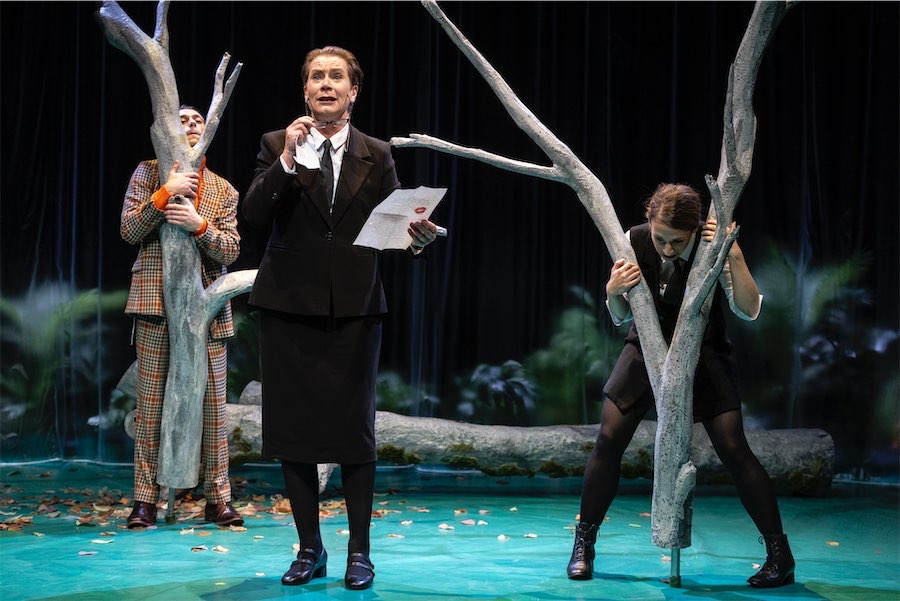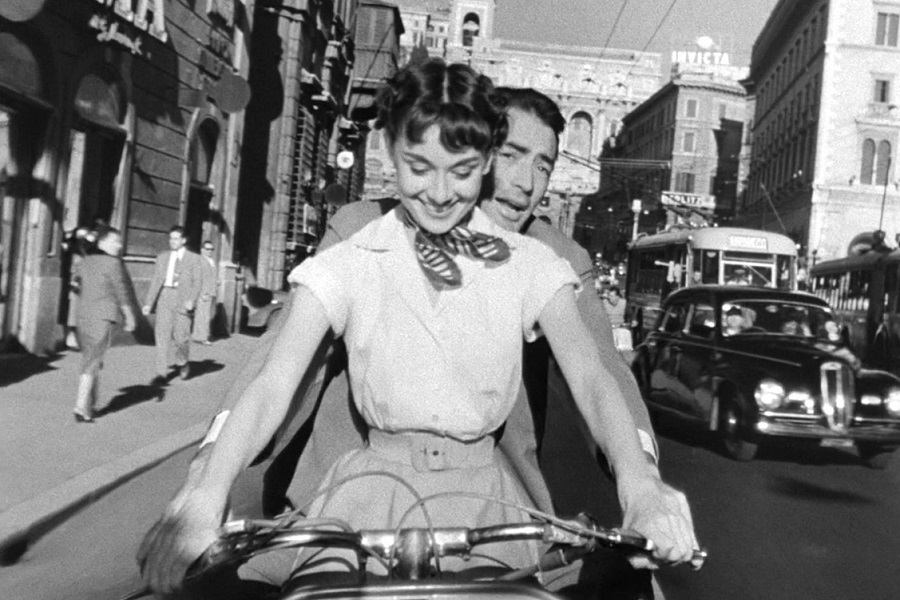
THERE will be more than the usual amount of gender-bending in Bell Shakespeare’s production of “Twelfth Night”, directed by Heather Fairbairn, who speaks of the production’s “timely exploration of the fluidity of gender and sexuality”.
That’s nothing new – Shakespeare just about invented it, with a line-up of plays where men play women playing men, who sometimes play women.
Among them, “Twelfth Night” is most enticing, because in addition, there are identical twins and we are invited to think that Sebastian and Sebastian look alike, allowing directors a lot of fun. Here well-known TV actor, Alfie Gledhill, plays Viola, who dresses up as a male.
Fairbairn also loves the “enigmatic” nature of the play – the setting is not specified and there’s an “other worldly” feel, especially in the clown Feste and his melancholy tunes, here scored by composer Sarah Blasko.
Just as Jaques is a plum part of “As You Like It”, so in “Twelfth Night” there’s Malvolia (yes, you know the part as Malvolio), the stitched-up chief of staff to the lady Olivia.
An isolated character with not much of a backstory, she’s a sitting duck for a new gender assignment as Jane Montgomery Griffiths takes on the role.
It’s been done before with Canberra’s Lexi Sekuless playing Malvolia in a Sydney production by Christopher Stollery, but it’s a first for Bell Shakespeare.
What’s so great about Bell, Montgomery Griffiths tells me, is that although it’s dedicated to “a British guy who died 400 or so years ago”, the company is committed to gender parity in casting, especially, she says: “Now that I’m in my 50s and the female roles seem to have dried up.”
She’ll be playing the part as “100 per cent female”, just as she played a female Bottom in “A Midsummer Night’s Dream” once.
In her studies of the text, she has detected some 17th century ideas about personality traits in men, but she believes it’s easy to find other elements that are common to both men and women.
Malvolia is mightily abused in the play by the tricksters, Toby Belch, his servant/girlfriend Maria, Sir Andrew Aguecheek and Feste, as a punishment for his highhandedness, but there’s always been an element of unfairness in this, so Montgomery Griffiths has invented an inner life, deciding to play her as a deeply repressed middle-aged woman who has never experienced any love in her life.
Playing her as a woman means a different power relationship with the drunken Sir Toby under whom, because of social status, she is powerless.
“I find it much more disquieting than that in the traditional interpretation,” she says, “playing the role in a repressed female body”.
Gender swapping is integral to the play, giving it what she calls “quite a queer feel” and making it a subversive play about dealing with gender roles and inappropriate love so having a man play Viola takes away the ambiguity.
Of course, it’s a comedy and the very humourlessness of Malvolia makes it funny, even if it’s a cruel sort of humour.
Because she lacks self-insight, when she suddenly has an experience of love, being misguided into thinking that the lady Olivia loves her, all repression inside her comes out in ridiculous ways. This is universal, Montgomery Griffiths says.
“In my interpretation, Malvolia doesn’t want advancement in power. She wants love, she thinks Olivia, her lady, is returning her love… It’s another sign of powerlessness.”
Sir Toby, she explains, is explicitly nasty to Malvolia, who takes it out on Maria and that, in turn, motivates Maria’s revenge. Montgomery Griffiths speculates that after the play Malvolia might go to work at a boarding school and take it out on the boys, continuing the cycle.
“Twelfth Night” teeters on the brink of tragedy at the end. Viola gets her man, but only because he thinks she’s a cute boy.
On the last page, Malvolia, newly freed from unjust incarceration, says, “I’ll be revenged on the whole pack of you”.
To Montgomery Griffiths, the dignity of the character in this scene is impressive and moving. For the first time in the play, she speaks in verse, very simple, with lots of pauses.
“You can hear the audience laughing at her, and then they don’t laugh – she’s broken.”
I’ve actually become quite fond of Malvolia,” she says. “She would’ve been infuriating to work with and she will never use one word when she could use five, but her heart is in the right place… I’m feeling I know her very well, and I hope the audience enjoys her, too. “
“Twelfth Night”, The Playhouse, October 13-21.
Who can be trusted?
In a world of spin and confusion, there’s never been a more important time to support independent journalism in Canberra.
If you trust our work online and want to enforce the power of independent voices, I invite you to make a small contribution.
Every dollar of support is invested back into our journalism to help keep citynews.com.au strong and free.
Thank you,
Ian Meikle, editor




Leave a Reply